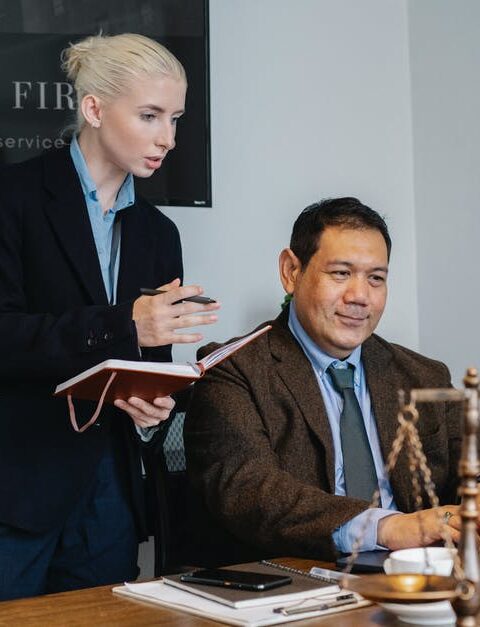Custody battles are difficult even in the best circumstances. When issues of abuse come into play, deciding custody can be even more difficult. You have to look at the best interests of your child, along with their protection and their future, and make a decision.
But what kind of decision are you making? How do you know which kind of custody is the right one? Do you know which arrangement is best?
Deciding between legal custody vs. primary physical custody is one of the most important decisions you’ll make. You don’t want to make the wrong choice, resulting in harm or trauma for your child.
So, keep on reading to learn more about the difference between the two.
Legal Definition
Understanding legal custody is crucial, especially for parents going through a divorce or separation. Below is a guide to help you learn more about legal custody and what is primary physical custody:
Legal Custody
Legal custody refers to the right of a person to make important decisions regarding their child’s welfare. It includes decisions regarding their child’s education, religion, health care, and other important areas.
Both parents have the same rights and responsibilities to care for a child. The court typically looks at the best interests of the child when deciding if this is the best arrangement.
It will usually give the parent or guardian exclusive authority to make decisions about the child’s lifestyle. This right includes the right to consent to where and with whom the child lives.
Legal custody can be shared or given to one parent. Where one parent is given sole legal custody, the other parent does not have a right to be involved in making important decisions.
Primary Physical Custody
Primary physical custody is typically awarded to one parent, while the other parent is given visitation rights. Parents that are awarded will usually have the majority of their time with the child.
During this custody, the child has the opportunity to develop a strong relationship with one parent. This is while maintaining a relationship with the other parent.
This is beneficial for the child because it makes the transition between each parent easier and more comfortable. It also allows for more stability for the child since they will have a consistent home environment.
Understanding The Differences
Legal custody and primary physical custody are both terms used in family law to describe different aspects of child custody arrangements. Read on to learn more.
Decision-Making Authority
Legal custody is the right to make long-term decisions about the child’s welfare, health, religion, and education. Legal custody can exist separately from physical custody.
Primary physical custody is where the child spends the majority of their time. The holder of this role has the authority to make day-to-day decisions about the child.
Both legal custody and primary physical custody grant decision-making authority. Legal custody is not to be considered in the court’s determination of which parent should have primary physical custody.
Shared Responsibility vs. Residence Arrangement
Legal custody will allow for legal decisions to be made regarding the child. Primary physical custody will allow for the parent with primary physical custody to be the one living with the child.
Shared responsibility means both parents are involved in the decision-making and responsibility for the child. It allows for both parents to have equal input in raising the child.
Residence arrangements mean that the child lives with one parent while the other parent has visitation rights. However, it may lead to one parent having a stronger bond with the child.
Ongoing Collaboration vs. Residence Arrangement
Ongoing collaboration allows parents to remain actively involved in their child’s upbringing. They can make decisions related to child welfare and be involved in activities related to such decisions.
Under a residence arrangement, the child lives with one parent, designated as the primary physical custodian. Both parents have legal custody with the right to make decisions for the child. They can be involved in the child’s education and extracurricular activities.
The differences lie in the ongoing physical and emotional involvement of non-primary parents. Ongoing collaboration requires a larger degree of communication, though residence arrangements can still include shared legal and physical custody agreements.
Importance of the Child’s Best Interests
The court will strive to make custodial arrangements that serve the best interests of the child. It will consider the individual factors of the child and the custodial environment that will be best suited to the child’s physical, social, and mental wellbeing.
In cases of primary physical custody, the child is likely to spend more time with the custodial parent. This parent has the primary responsibility to care for the child and to meet the child’s emotional, physical, and educational needs.
The custodial parent is expected to enable continuous contact with the other parent. Unless the court finds that contact is not in the child’s best interest due to a substantial risk of harm.
Finding and Consulting a Custody Lawyer
A lawyer can provide advice on the best course of action for you and your family. When you select a lawyer, look for one that has experience and success in legal custody and primary physical custody in Florida.
Meet with several custody attorneys before deciding who to hire. Be prepared to discuss critical issues that will be relevant in determining child custody and other important factors.
When you consult with a lawyer, be honest and open about your situation. This will make it easier for the lawyer to offer advice that will be tailored to your individual needs. Make sure you go over all legal documents with your lawyer before signing off on anything.
A Guide to the Difference Between Legal Custody and Primary Physical Custody
Legal and physical custody of a child can be confusing. Understanding the differences between legal custody and primary physical custody is essential to navigating the legal process.
By following the laws outlined in this guide, parents can be better equipped to make the best decisions for their families. For further advice or representation, seek out an experienced lawyer who can help you through the process.
Did you enjoy this topic? Then explore the rest of our blog for more!







